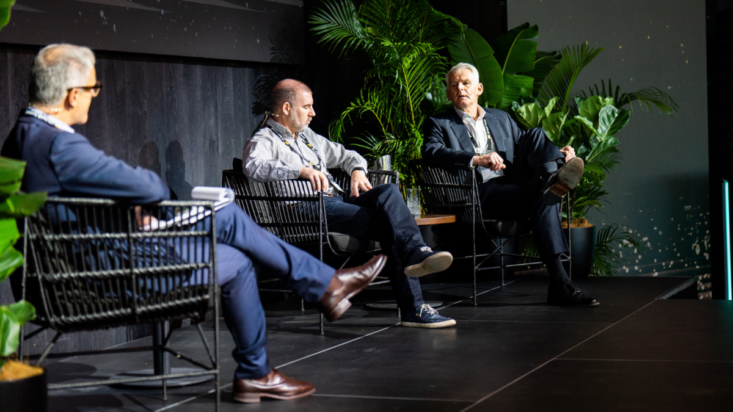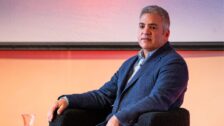Why the active opportunity set is ‘richer than it has been in years’ (and what to do about it)
The eternal active vs passive debate got a shake-up earlier this month when the Future Fund revealed that it was once again backing active equity managers where it had previously held the view that they rarely generated outperformance – and that when they did their ‘skill’ was usually indistinguishable from luck. But while a number of asset consultants and managers believe in active management, it comes with caveats.
“A strong focus on fees will lead you to passive, but we have a strong belief in active management,” Aongus O’Gorman, head of investments at WTW Australia, told The Inside Network’s Investment Symposium. “Why (is the Future Fund) looking at getting back into (active management in) equities? Because what they’re observing in the market is that the volatility of the individual companies has been driven more by their fundamentals.”
“So that’s caused greater dispersion between individual companies in indices and that’s normally a good environment for active management. We believe in active management at the right price. If you’re paying too much it’s going to be pretty hard to make money.”
When it comes to assessing the worth of a fund manager, Jake Jodlowski, principal of Atchison Consultants, said that “buying the market for zero is (their) starting point”.
“In simplistic terms then, fund manager, you justify why we should invest with you and diversify away from the index at a certain cost,” Jodlowski said. “We take a longer-term view; you want to look at a fund manager through the investment cycle. In the institutional world there’s a lot more patience because the investment objective is into perpetuity. In the wealth management space we understand that advisers are under more pressure when it comes to clients, especially when the market suddenly tanks. Our preference is to give a manager five years and see how they go through that cycle.”
“Unless there’s some serious issues within the manager like the portfolio manager walked out or the team’s disgruntled or their style has changed then obviously we will pick that up through our own analysis and reviews. But otherwise you’ve got to have patience. There isn’t an active manager in the country that isn’t trying to outperform whatever benchmark they’ve set themselves.”
Brendan Paul, senior portfolio manager at Atrium, said that the opportunity set for active management is “richer than it has been for years” but that as part of its risk-targeted approach Atrium spends a lot of time examining the holdings of its managers and the style or factor biases those managers can bring to the table.
“Ultimately, they can play a big role in how diversifying their performance will be,” Paul said. “The example I would give is we focus on managers with quality bias, which refers to companies or corporates with very robust balance sheets, very strong structural growth drivers, very strong governance.”
“Last year that still didn’t have a terrific year but this year to date with the prospect of a recession, that factor has been rewarded. It’s much better. And we’ve done a lot of research and we feel that quality is the right way to be positioned coming into these sorts of risks and uncertainty.”
In the major asset classes, equities are optimistic, pricing a recovery from a recession “we haven’t had yet”; the bond market isn’t getting ahead of itself and is being more realistic, Paul said. The biggest opportunity now is to be “open minded” about portfolio construction.
“It’s an exciting time, in our opinion.. don’t fall back on a playbook that worked over the prior two decades of very plentiful liquidity and very low interest rates. You could argue that lifted all boats, providing strong structural tailwinds for a 60/40 or 70/30 portfolio. We’d prefer to be open minded about it and think about our diversification levers.”
*This story was originally published in our sister publication, Investor Strategy News.











